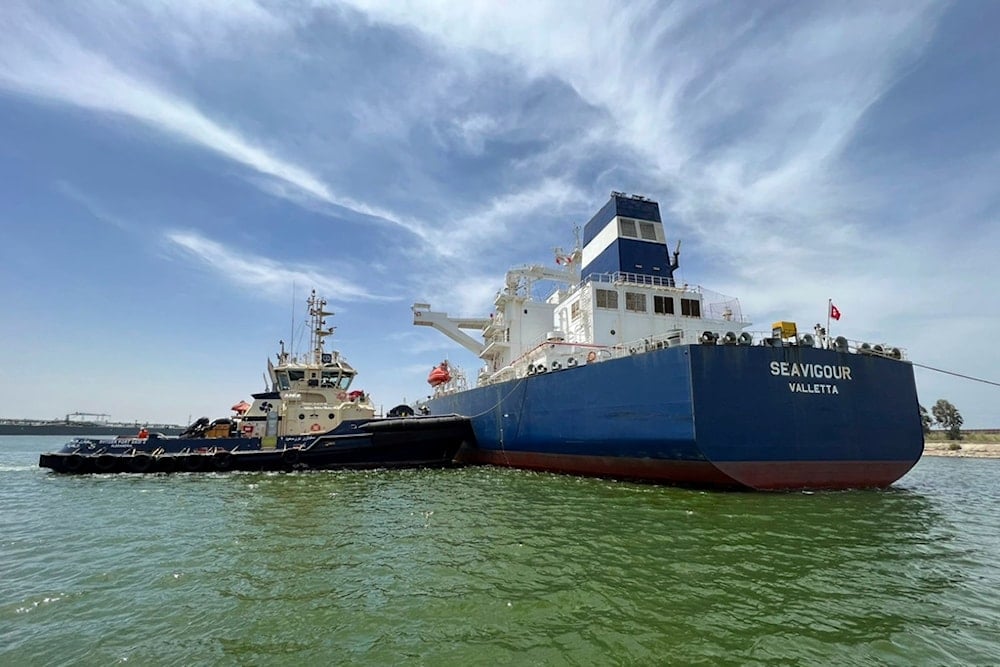Suez Canal Economic Zone chief says area ready ready for expansion
The head of the Suez Canal Economic Zone underlines that billions of dollars had been invested in the Zues Canal in order to expand it.
-

In this photo provided by Egypt's Suez Canal Authority, a tugboat pushes the Malta-flagged Seavigour after it suffered a mechanical malfunction at the 12 kilometers (7.5 miles) mark of the canal, Egypt, Sunday, June 4, 2023 (AP)
The head of the Suez Canal Economic Zone (SCZone) in Egypt, Walid Gamal el-Din, announced Tuesday that the authority had invested $3 billion in infrastructure over recent years, with plans to invest an equivalent amount in the coming years.
Gamal el-Din highlighted the region's political instability as a factor reinforcing the importance of diversification and risk management, noting that recent investments had been fruitful, with new projects flourishing over the past 24 months.
Gamal el-Din stated that SCZone has attracted over $6.3 billion in investments across sectors, including logistics, ports, and various industries, with 164 projects established. Of these, seven are located in SCZone ports, with the remainder comprising factories and logistics sites within the economic zone.
He expects substantial growth in this figure, pointing out that nearly $1 billion was secured within the first four months of the fiscal year, which began in July.
Among the notable projects is the East Port Said Container Terminal, which includes a general cargo terminal expected to become operational soon, a vehicle terminal set to launch by January, and another container terminal scheduled for April.
Gamal el-Din also mentioned that around 2.4 kilometers (1.5 miles) of container berths in East Port Said have been operational for several years, while discussions are underway with operators to secure an additional kilometer. He emphasized that the economic zone attracted more than 160 projects over the last two years.
At the start of the year, the chairman of Egypt's Suez Canal Authority on Saturday reported that revenues for the month of January 2024 witnessed a massive decrease of 46% compared to the same period in 2023.
"In January of last year, we saw revenues of $804 million, versus $428 million this year, which means a loss of 46%," Admiral Osama Rabiee told the Egyptian-based broadcaster ON.
The quantity of vessels traversing the crucial waterway, linking the Red Sea to the Mediterranean, experienced a 36% decline last month compared to January 2023.

 2 Min Read
2 Min Read








